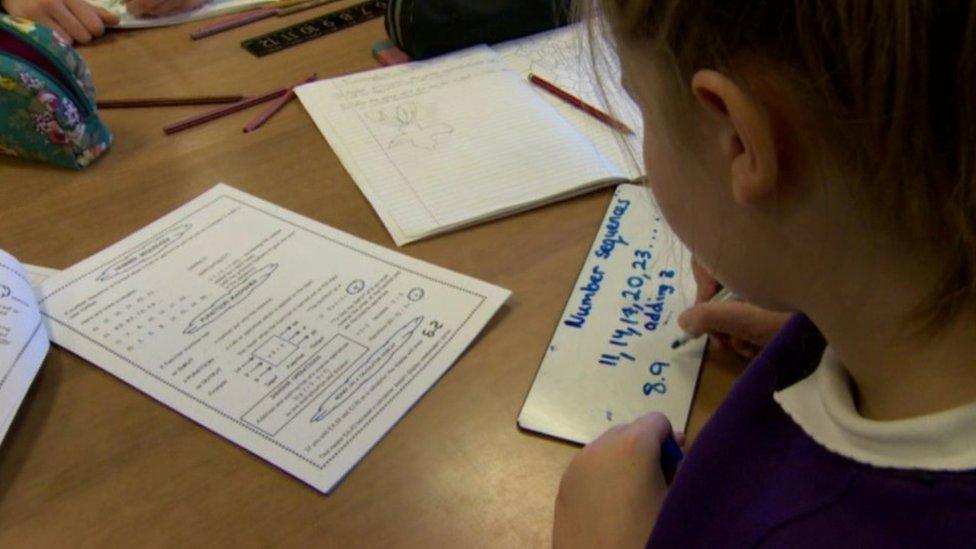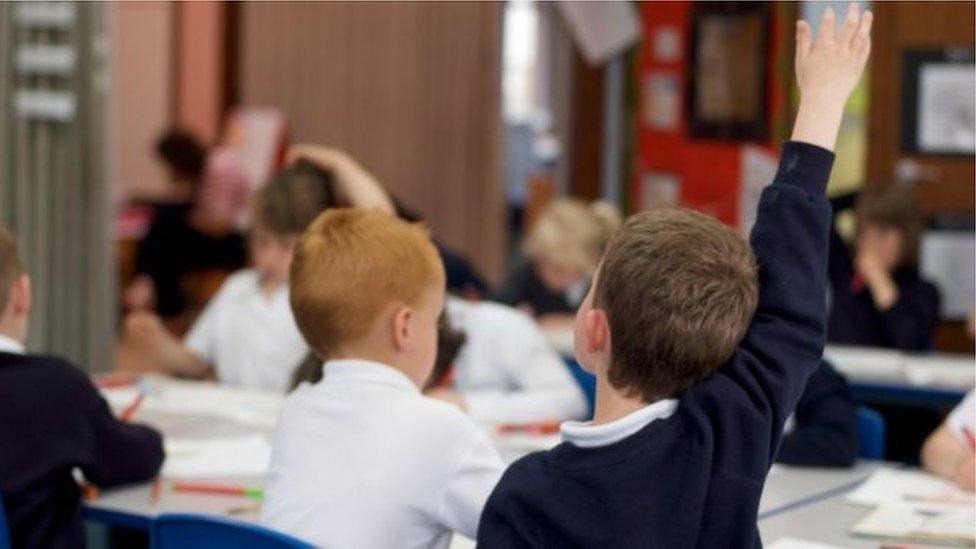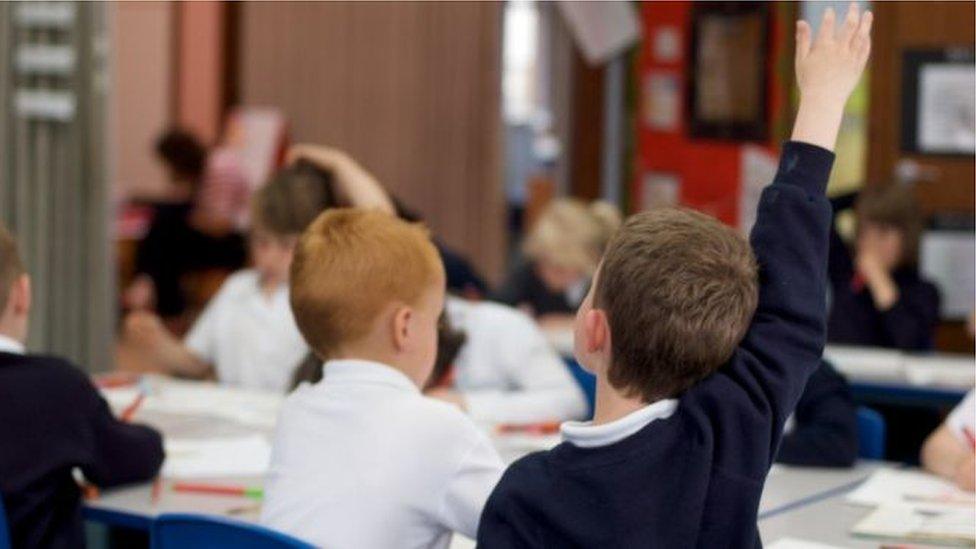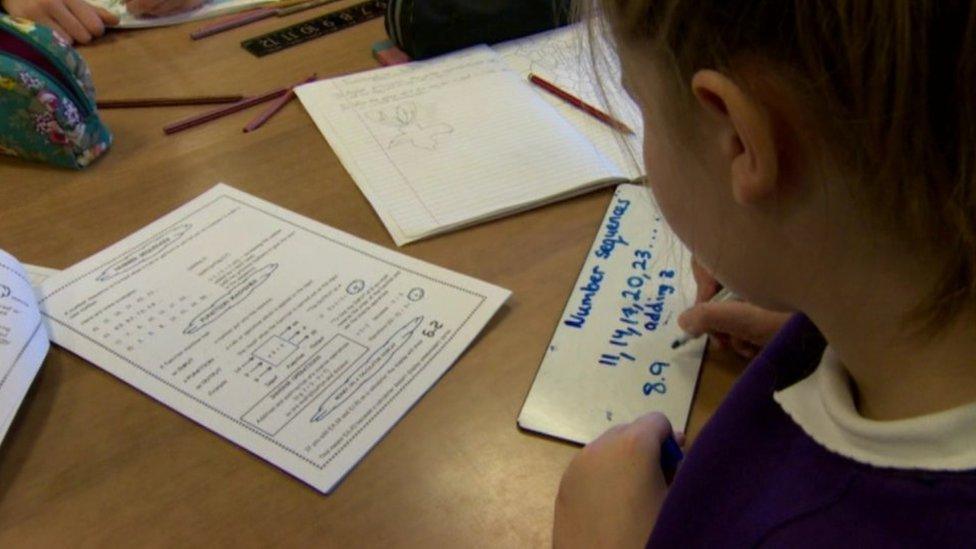NASUWT teachers stage one-day strike over pay
- Published

The NASUWT is one of the largest teaching unions in NI and is striking for the first time since 2011
Teachers belonging to the NASUWT in the Derry City and Strabane, Mid Ulster and Fermanagh and Omagh council areas are staging a one-day strike over pay, jobs and workload.
A number of schools in those areas are closed or partially closed to pupils on Tuesday.
The outgoing Education Minister Peter Weir had previously called the strike "futile".
The NASUWT union said it had been "forced" into the action.
Meanwhile, the union representing many school principals said that industrial action was having a "profound impact" on school inspections.
In October, all five main teaching unions in Northern Ireland rejected an offer that would have seen their pay frozen last year and a rise of 1% for 2016-17.
Members of the NASUWT in Belfast and Newtownabbey subsequently held a one-day walkout on 30 November 2016.
Teachers belonging to the INTO union also staged a half-day strike on 18 January.
Schools had already informed pupils and parents about Tuesday's planned closures.
Members of the other classroom teaching unions - the Ulster Teachers' Union (UTU) and Association of Teachers and Lecturers (ATL) - voted against strike action.
However, all of the classroom teaching unions are also taking action short of a strike.
This includes complete non co-operation with school inspections carried out by the Education and Training Inspectorate (ETI).
Teachers are refusing to provide information to inspectors or allow them to observe their classroom teaching.

The dispute is over pay, workload and job insecurity
That has led to the union which represents most principals and vice-principals - the National Association of Head Teachers (NAHT) - to express concerns over "the integrity of the inspection process".
In written advice issued to their members, the NAHT said: "Incomplete inspections do not lead to accurate evaluations.
"Such inaccuracies ultimately serve to devalue the safety of children."
The NAHT is recommending that schools about to be inspected write to the ETI asking them "to defer the inspection until the industrial action has ceased".
"It will quite clearly be impossible for you to carry out an effective inspection at this time," the NAHT has advised the ETI.
The NAHT has written to the ETI chief inspector Noelle Buick to express their concern that inspections will be "based on incomplete evidence".
However, the ETI said that "inspections should go ahead in the best interests of the children and young people".
- Published5 January 2017

- Published7 November 2016

- Published12 October 2016
